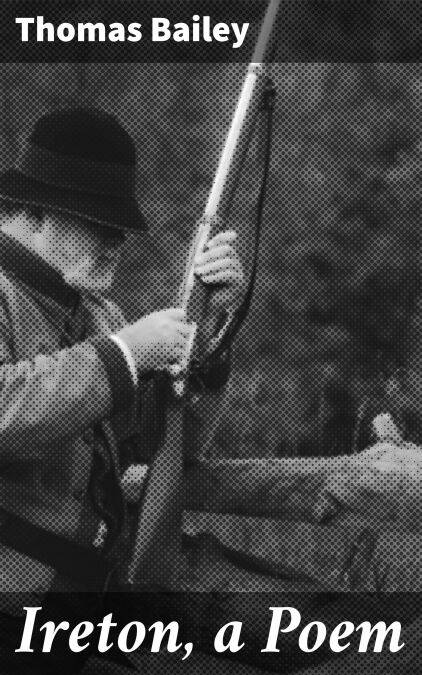
- Afhalen na 1 uur in een winkel met voorraad
- Gratis thuislevering in België vanaf € 30
- Ruim aanbod met 7 miljoen producten
- Afhalen na 1 uur in een winkel met voorraad
- Gratis thuislevering in België vanaf € 30
- Ruim aanbod met 7 miljoen producten
Zoeken
Ireton, a Poem E-BOOK
A Lyrical Journey Through Political Turmoil and Personal Struggle
Thomas Bailey
E-book | Engels
€ 0,49
Omschrijving
Thomas Bailey's "Ireton, a Poem" is a poignant exploration of historical themes interwoven with the complexities of human emotion and political turmoil. Set against the backdrop of the English Civil War, Bailey employs a lyrical style that reflects both Romantic sensibilities and a deep engagement with historical narrative. The poem intricately captures the life and legacy of Henry Ireton, a key figure in the Parliamentarian movement, using evocative imagery and a nuanced structure that enhances the emotional stakes of its subject matter. The author, Thomas Bailey, draws upon a rich historical and literary background, which informs his interpretation of Ireton's character and his tumultuous times. Bailey's interest in the intersections of personal narrative and broader social upheavals is reflective of his own research and philosophical inquiries into the nature of power and sacrifice. His investments in both poetry and history enable him to craft a work that is not only insightful but also deeply resonant with readers who seek to understand the human condition through the lens of past struggles. This poem is highly recommended for those who appreciate a blend of history and lyrical beauty. Readers interested in the psychological dimensions of historical figures, as well as fans of Romantic poetry, will find Bailey'Äôs work to be both illuminating and moving, encouraging reflection on how the past carries forward into contemporary discourse.
Specificaties
Betrokkenen
- Auteur(s):
- Uitgeverij:
Inhoud
- Aantal bladzijden:
- 157
- Taal:
- Engels
Eigenschappen
- Productcode (EAN):
- 4057664169808
- Verschijningsdatum:
- 19/11/2019
- Uitvoering:
- E-book
- Beveiligd met:
- Digital watermarking
- Formaat:
- ePub

Alleen bij Standaard Boekhandel
Beoordelingen
We publiceren alleen reviews die voldoen aan de voorwaarden voor reviews. Bekijk onze voorwaarden voor reviews.











